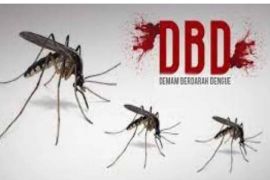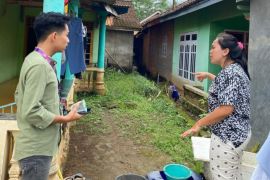He noted that parents need to understand the changes in their children's bodies so that when the dengue fever worsens, they can receive medical treatment and fatality due to dengue can be prevented.
"Parents must really understand their children, sometimes they cannot express what they feel. In fact, in diagnosis, doctors often rely on anamnesis. Through interviews, illnesses can be identified without laboratory results," he explained in a discussion event here on Sunday.
According to the ministry's data, as of May 2024, from 2022 to 2024, the highest number of dengue fever cases was found in people aged 15-44 years, accounting for 43 percent of the total.
Meanwhile, in terms of the fatality rate, the highest number of dengue-related deaths in the last seven years was found in children aged 5-14 years, accounting for 53 percent. Pambudi stated that cases of death due to dengue among children are caused by children's immunity which is not yet as good as people in productive age.
Baca juga: Elderly empowerment vital in face of aging population: ministry
Baca juga: Jakarta govt preparing the release of Wolbachia-contained mosquitos
Apart from that, symptoms of worsening dengue fever conditions are hard to detect in children because they cannot describe the symptoms that they feel. Thus, children often target treatment when they are already in critical condition. To this end, parents are urged to communicate intensely with children regarding the changes that they feel in their bodies.
Some symptoms that can be a sign for parents that their child is experiencing a worsening condition include no improvement in the condition after the body temperature decreases, the child continues to refuse to eat and drink, severe stomach pain, and lethargy.
Pewarta : Livia Kristianti, Raka Adji
Editor:
I Komang Suparta
COPYRIGHT © ANTARA 2026








